The President of India is the titular head of the government (Article 52) and acts on the recommendation of the Prime Minister of India.
Article 55 of the Indian Constitution appoints the president of India. He is elected indirectly by the directly elected members of both the Rajya Sabha and the Lok Sabha, as well as the legislative assemblies of India's states and union territories.
According to Article 56, a president is elected for a five-year term.
All the Memorandums of Understanding (MOUs) made in India with other nations, as well as all executive actions, are carried out in the name of the President of India.
We have had 15 Presidents since our independence. From the first President of Independent India, Dr. Rajendra Prasad, through the present President, Droupadi Murmu.
The post below gives an overview of all the Presidents of India to date. This will be a very helpful topic for all the upcoming Kerala PSC 10th, 12th and degree level examinations.
Basic Facts
- Minimum age limit – 35 years.
- Maximum age limit – no limit.
- Maximum no. of times a person can be elected to the office of the President – no limit.
- First President – Dr. Rajendra Prasad (1950).
- First Vice President of India – Dr. Sarvepalli Radhakrishnan.
- First Acting President of India – V.V. Giri.
- First Woman President of India – Pratibha Patil (2007).
- First Muslim President of India – Dr. Zakir Hussain (1967).
- First President of India who died while in office – Dr. Zakhir Hussain (May 3, 1969).
- First Sikh President – Giani Zail Singh (1982).
- First President who elected without any opposition – Neelam Sanjeeva Reddy (1977).
- First Dalit President Of India – K. R. Narayanan (1997).
- First Scientist President of India – Dr. A.P.J. Abdul Kalam (2002).
- First & Only President who won solely on the basis of second-preference votes – V.V. Giri (1969; vs Neelam Sanjeeva Reddy).
- Chief Justice of India served as the President of India for some time – Justice M. Hidayatullah.
- No. of Presidents who received Bharat Ratna – 6.
- Dr. Rajendra Prasad, Sarvepalli Radhakrishnan, Zakir Hussain, Dr. V. V. Giri, A. P. J. Abdul Kalam & Pranab Mukherjee.
List of Presidents of India (1952-2025)
1. Dr. Rajendra Prasad (1952-1962)
- First President of India.
- Sobriquet – Bihar Gandhi.
- Only person to have held office for two consecutive terms.
- Longest-serving President of India.
- President of Constituent Assembly of India.
- President of the Indian National Congress (1934 & 1939).
- First Minister of Agriculture in Independent India (Interim Government, 1946).
- Unanimously elected as the President of India at the last session of the Constituent Assembly of the interim government.
- First President to make use of Article 143, ie to consult Supreme Court for its opinion.
- Imprisoned during Salt Satyagraha (1931) & Quit India (1942).
- President of the Quetta Earthquake Relief Committee.
- An earthquake struck Quetta, Balochistan in 1935 killing approx. 60,000 people.
- Awards – Bharat Ratna (1962).
- Books – Atmakatha (Autobiography), India Divided. Satyagraha at Champaran.
2. Dr. Sarvepalli Radhakrishnan (1962-1967)
- Second President of India.
- First Vice President of India.
- First President from South India.
- First President to declare Emergency (1962).
- First President to receive Bharata Ratna (1954).
- Received Bharat Ratna before becoming President.
- First President to receive Knighthood (1931).
- Teacher's Day – September 5, Birthday of Dr. S. Radhakrishnan (since 1962).
- Represented India at UNESCO (1946–52).
- Elected as chairman of the executive board of UNESCO in 1948.
- Ambassador of India to the Soviet Union (1949 – 1952).
- Founded Helpage India.
- Also served as the Vice-Chancellor of Banaras University (1939) & Andhra University.
- Awards & Recognitions
- Knighthood (1931).
- Bharata Ratna (1954).
- Honorary member of the British Royal Order of Merit in 1963.
- Peace Prize of the German Book Trade (1961).
- Templeton Prize (1975).
- Radhakrishnan Chevening Scholarships of Oxford University.
- Nominated for Nobel Prize in literature (16 times) & Nobel Peace Prize (11 times).
📌 Read More: About President's Rule
3. Dr. Zakir Hussain (1967-1969)
- Third President of India.
- First Muslim President of India.
- First President of India who died while in office (May 3, 1969).
- Shortest-served President of India.
- Vice President of India (1962 – 1967).
- Governor of Bihar (1957 – 1962; 5 consecutive years).
- Co-founded Jamia Millia Islamia University, Aligarh on October 29, 1920 (at the age of 23).
- Former Name – National Muslim University.
- shifted to New Delhi in 1925.
- renamed as Jamia Millia Islamia in 1935.
- buried in the Jamia Millia Islamia campus.
- Vice-Chancellor of the Aligarh Muslim University and the co-founder of the Jamia Millia Islamia University of Delhi.
- Translated Plato's 'The Republic' & Cannon's 'Elementary Political Economy' to Urdu.
- Member of UNESCO (1956 – 1958).
- Awards – Bharat Ratna (1963), Padma Vibhushan (1954).
- Received Bharat Ratna before becoming President.
4. V.V. Giri (1969 – 1974)
- Fourth President of India.
- First Acting President of India.
- First Person to have served as both an Acting President and then President of India.
- First non-Congress candidate to be elected President of India.
- First President to be elected as an independent candidate.
- First High Commissioner of India to Ceylon (1947–1951).
- Elected to the first Lok Sabha from Pathapatnam Constituency in the Madras State in the general elections of 1956.
- Governor of Uttar Pradesh (1956–1960), Governor of Kerala (1960 – 1965) & the Governor of Karnataka (1967–1969).
5. Fakhruddin Ali Ahmed (1969-1974)
- Fifth President of India.
- Second President of India to die in office.
- President during emergency 'Internal Disturbance.'
- Elected on Congress ticket to the Assam Legislative Assembly on two terms (1957–1962) and (1962–1967) from Jania constituency.
- In 1942, he was arrested in the Quit India movement and sentenced to three and a half years' imprisonment.
6. Neelam Sanjeeva Reddy (1977-1982)
- Sixth President of India.
- Only Indian President who was elected unopposed.
- First president who did not become vice-president.
- Only person to become Indian president after failing in the previous presidential election.
- First CM of Andhra Pradesh state.
- First person to become the Indian president after becoming the chief minister of a state.
- Unanimously elected Speaker of the Lok Sabha (March 26, 1977).
- First Lok Sabha speaker to resign from the post.
- Union Minister under Prime Ministers Lal Bahadur Shastri & Indira Gandhi.
- In 1975, he joined the Janata Party and by 1977 was elected President of India.
- From April 1949 to April 1951, he was the Minister for Prohibition, Housing, and Forests of the Madras State.
7. Gani Zail Singh (1982-1987)
- Seventh President of India.
- First Sikh President of India.
- President during the introduction if a lifelong pension scheme for the freedom fighters of the state.
- President during Operation Blue Star & Anti- Sikh riots of 1984.
- President when Indira Gandhi was assassinated.
- Chief Minister of Punjab in 1972.
8. Ramaswamy Venkataraman (1987-1992)
- Eighth President of India.
- The freedom fighter who participated in Quit India Movement.
- Member of the Union Planning Commission in 1967.
- Member of the Constituent Assembly and the provisional cabinet.
- Practiced Law in Madras High Court & Supreme Court.
- Elected four times as a member of the Lok Sabha.
- Finance Minister (1980) → Defence Minister (1982) → Vice President (1984).
- Member of the Parliamentary delegation to the Commonwealth Parliamentary Conference in New Zealand.
- Established 'Integrated Guided Missile Development Programme,' India's first missile programme, and designated APJ Abdul Kalam as programme director.
- Four Prime Ministers → Narasimha Rao, Chandra Shekhar, Viswanath Pratap Singh & Rajiv Gandhi were elected during his tenure.
- Awards – Soviet Land Prize (By Russia; for travelogue on former Tamil Nadu Prime Minister, Kumaraswami Kamaraj's visit to Russia), Tamra Patra ( in recognition of his efforts to India's freedom fight).
9. Dr. Shankar Dayal Sharma (1992-1997)
- Ninth President of India
- Chief minister of the Bhopal state (1952).
- Chief Minister of Madhya Pradesh.
- Eighth Vice-President of India and chairman of the Rajya Sabha.
- Cabinet Minister (1956–1967), holding the portfolios of Education, Law, Public Works, Industry and Commerce, National Resources, and Separate Revenue.
10. K. R. Narayanan (1997-2002)
- Tenth President of India
- Ninth Vice President in 1992.
- Oldest Person to become President of India (77 years old).
- First President who cast his vote in Lok Sabha Election (1998).
- First Dalit President of India.
- First President of India from Kerala.
- born in a Dalit family in Uzhavoor village of present-day Kottayam district.
- First Dalit to receive a first-class Master's degree in English Literature from the University of Travancore.
- During the 1998 general elections, he was the first president to vote in a polling booth during his tenure.
- Indira Gandhi requested K R Narayanan to enter into politics and he won three successive general elections to the Lok Sabha in 1984, 1989, and 1991, as a representative of the Ottapalam constituency in Palakkad, Kerala, on a Congress ticket.
- Ambassador to – Japan, United Kingdom, USA, Thailand, Turkey & People's Republic of China.
- 'The best diplomat of the country' – Nehru.
- Books – India and America: Essays in Understanding (1984) & Non-Alignment in Contemporary International Relations (1981).
11. Dr. A.P.J. Abdul Kalam (2002-2007)
- Eleventh President of India.
- Nicknames – People’s President, Missile Man of India.
- First Scientist to become President of India.
- First Bachelor President of India.
- First Muslim President to complete term.
- First President to travel on a Warplane.
- First President to travel in a Submarine.
- First Indian President to visit Siachin.
- First President to receive a salary of one rupee.
- First President who cast his vote in Parliamentary Election – Dr. A.P.J. Abdul Kalam.
- Awards –
- Bharat Ratna (1997).
- Received Bharat Ratna before becoming President.
- Padma Vibhushan (1990) & Padma Bhushan (1981).
- First Asian to receive Hoover Medal, the top American engineering prize in 2009.
- The Indian President who received most no.of honorary doctorates.
- > 30 doctorates from different countries around the world.
- He was a scientist and science administrator at the Defence Research and Development Organisation (DRDO) and Indian Space Research Organisation (ISRO) and was intimately involved in India's civilian space programme and military missile development efforts.
- Major role as the head of the Pokhran-II nuclear testing, Operation Shakti.
- conducted at the Pokhran Test Range in Rajasthan’s Jaisalmer district in May 1998.
- Project director of India's first Satellite Launch Vehicle (SLV-III) at ISRO (1969).
- Chief Scientific Adviser to the Prime Minister & the Secretary of the DRDO (1992-1999).
- Played a major role in the development of the indigenous guided missiles of India, Agni, and Prithvi.
- Developed coronary stent 'Kalam-Raju Stent' & 'Kalam-Raju tablet' jointly with Soma Raju.
- Books – Wings of Fire (Autobiography), My Journey, India 2020: A Vision for the New Millennium, Ignited Minds, The Luminous Sparks, etc.
12. Pratibha Patil (2007-2012)
- Twelfth President of India
- First Woman President of India.
- First Female Governor of Rajasthan.
- 24th Governor of Rajasthan.
- First President of India to be honored with the 'Order of Aztec Eagle', the highest Civilian Award of Mexico (2019).
13. Dr. Pranab Mukherjee (2012-2017)
- Thirteenth President of India.
- Union Finance Minister (2009–2012).
- Union Deputy Minister of Industrial Development in Indira Gandhi's cabinet in 1973.
- The only minister to have held four main ministries: defence, trade, foreign affairs, and finance.
- Only Finance Minister to have presented seven budgets.
- First President of India who was honored with the highest civilian award 'National Order of the Republic of Ivory Coast' (2016).
- Worked as a journalist for Desher Dak, a local Bengali newspaper.
- Elected to Rajya Sabha five times from 1969 & twice to the Lok Sabha from 2004.
- Member of the Congress Working Committee, the highest policy-making body of the Party for a period of 23 years.
- He formed his own party, the Rashtriya Samajwadi Congress, which merged with the Congress in 1989 after reaching a consensus with Rajiv Gandhi.
- Mukherjee's political career was revitalised after Rajiv Gandhi's assassination in 1991, when Prime Minister P. V. Narasimha Rao nominated him as chairman of the Planning Commission in 1991 and foreign minister in 1995.
- Rejected seven mercy petitions, including those of Afzal Guru, a convict in the 2001 Indian Parliament attack, and Ajmal Kasab, the lone surviving shooter in the 2008 Mumbai terror attack.
- Awards –
- Padma Bushan (2008).
- Bharat Ratna (2019).
- Best Parliamentarian Award (2017).
- Best Finance Minister in the World (1984)
- By Euromoney magazine.
- National Order of the Republic of Ivory Coast (2016).
- Books – The Presidential Years, 2012-2017, Beyond Survival: Emerging Dimensions of Indian Economy (1984) and Challenges Before the Nation (1993).
14. Ram Nath Kovind (2017-2022)
- Fourteenth President of India.
- Second Dalit President of India.
- Rajya Sabha MP from the state of Uttar Pradesh in April 1994.
- He served a total of twelve years, two consecutive terms, until March 2006. As a member of parliament, he served on the Parliamentary Committee for Welfare of Scheduled Castes/Tribes,
- 36th Governor of Bihar from August 16, 2015, to June 20, 2017, and was a Member of Parliament, Rajya Sabha from April 1994 to March 2006.
15. Draupadi Murmu (2022-incumbent)
- 15th President of India.
- Second Woman President of India.
- First tribal woman President of India.
- A tribal leader from Rairangpur in the Mayurbhanj district in Odisha.
- First Woman Governor of Jharkhand (2015-2021).
- 9th Governor of Jharkhand.
- First Woman tribal leader to be appointed as a Governor of the Indian State.
- First president to be born after Independence.
- Youngest Person to become President of India (64 years old).
- Contested against Yashwant Sinha in the 2022 Presidential elections.
- The first President to gave policy address in the new parliament building in India – Droupadi Murmu.
Acting Presidents of India
- Total no. of Acting Presidents in India – 3.
- First Acting President of India – Justice Hidayatullah (1969).
- Acting President for the Shortest Period – Justice Hidayatullah (1969).
- Acting President for the Longest Period – B.D. Jatti (1977).
- Justice Hidayatulla (1969)
- Varahagiri Venkata Giri (1969-1974)
V.V. Giri is the only person to have served as both an acting president and president of India.
- Basappa Danappa Jatti (1977)
After the sudden demise of Dr. Zakir Khan, Mohammad Hidayatullah was appointed as the acting President for a short tenure of 1 month 3 days ( from 20 July 1969 to 24 August 1969).
He was also the Chief Justice of India and was a recipient of the Order of the British Empire.
Basappa Danappa Jatti was the acting President after the demise of Dr. Fakhruddin Ali Ahmed in 1977.
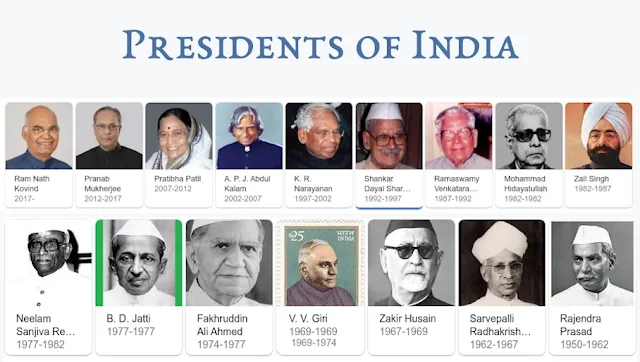






.jpg/220px-President_of_India_Giani_Zail_Singh_(cropped).jpg)


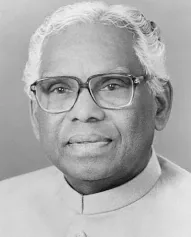


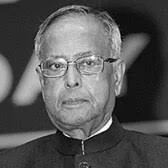
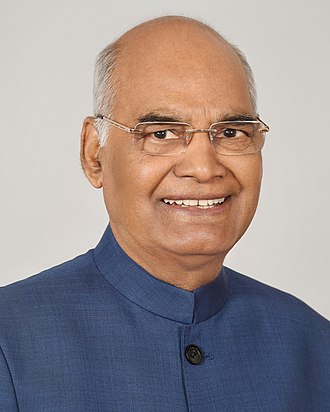


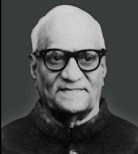
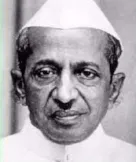
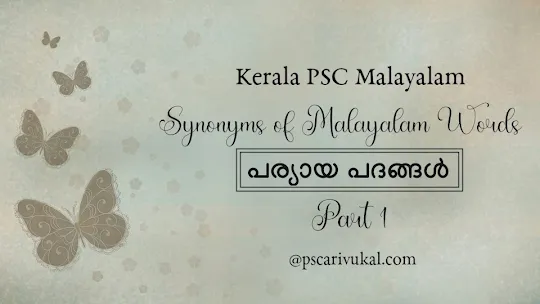





Post a Comment
Post a Comment